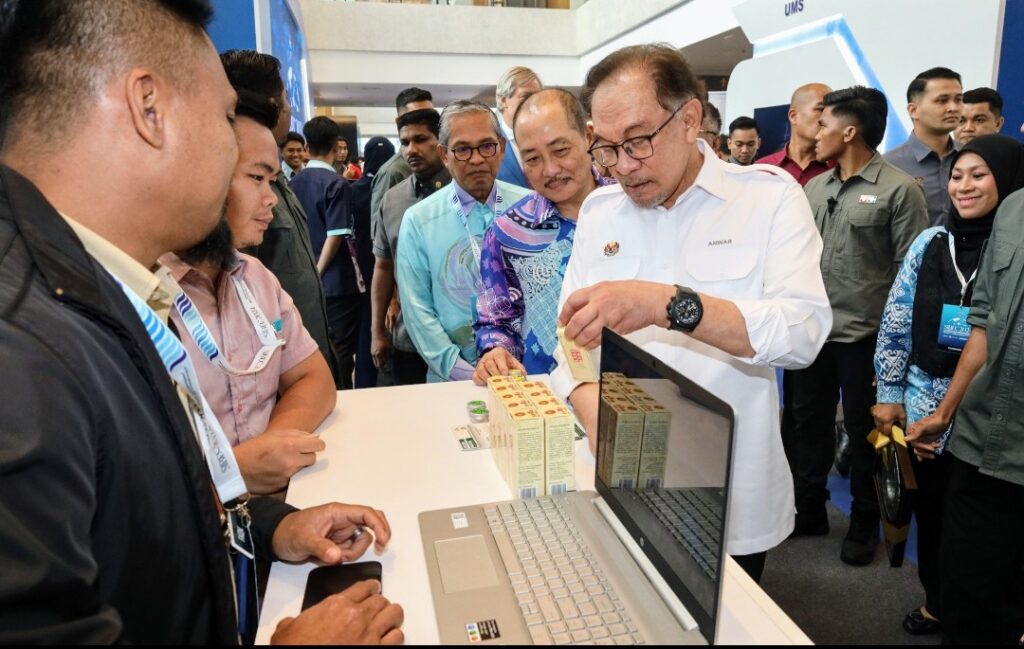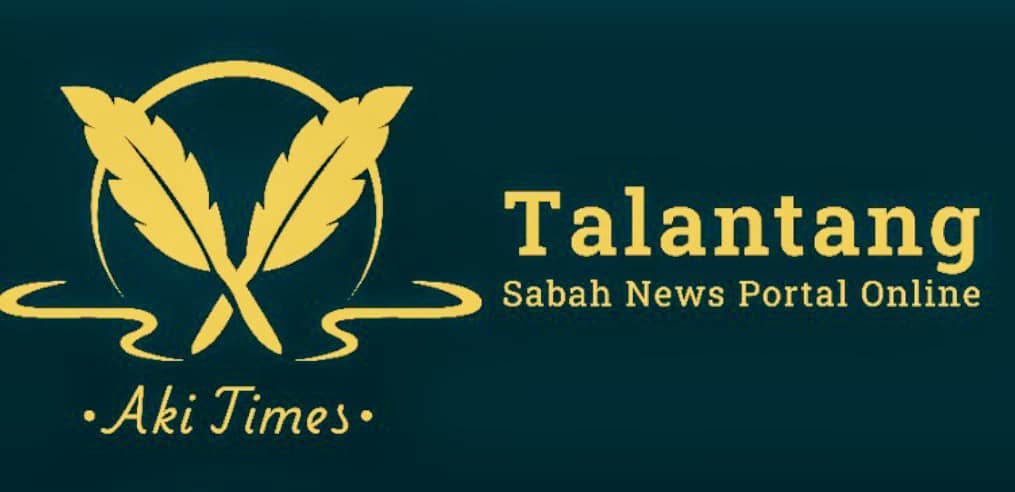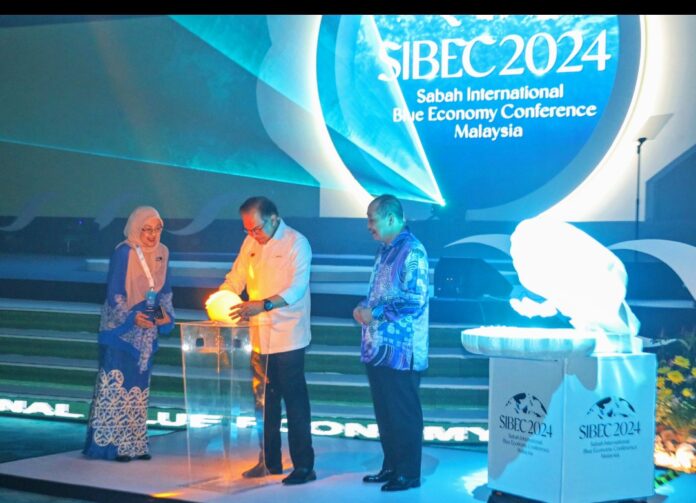Prime Minister Datuk Seri Anwar Ibrahim accompanied by Chief Minister Datuk Seri Panglima Haji Hajiji Haji Noor performing SIBEC 2024 launch gimmick.

Prime Minister Datuk Seri Anwar Ibrahim and Chief Minister Datuk Seri Panglima Haji Hajiji Haji Noor greeting the delegates upon arrival at SICC today.
KOTA KINABALU: Sabah offers immense investment opportunities in Blue Economy, said Chief Minister Datuk Seri Panglima Haji Hajiji Haji Noor.
“Sabah Blue Economy’s estimated potential annual yield of fish and prawns is more than 491,000 metric tons, with a value of RM3.25 billion.
“But to date, less than 50 per cent of the potential catch is being explored. Although there are more than 3,000 fishing vessels out there, most of them stay within 30 nautical miles from the coast.
“Now, only seven vessels go out to the deep-sea areas. This is an opportunity for industrial fishermen to set up more processing facilities for deep-sea harvests.
“The autonomy given to Sabah to approve and issue licenses for maritime activities like deep-sea fishing, is a boon to the state in our bid to develop our Blue Economy,” he said at the Sabah International Blue Economy Conference (SIBEC) 2024 held at the Sabah International Convention Centre, here today.
The Chief Minister, however, said there is more to Blue Economy than just deep-sea fishing.
“In fact, there are 14 components of the Blue Economy that can be explored. Among them are renewable ocean energy, blue carbon, tourism, maritime transport, and marine biotechnology, among others,” he said.
Hajiji said there is also the exciting possibility of harvesting energy through the oceans.
“In April of this year, we passed the Ocean Thermal Energy Conversion (OTEC) Act, which enables the Energy Commission of Sabah to explore ocean thermal energy conversion as a renewable energy source,” he said.
The Chief Minister explained that OTEC technology uses the temperature difference between the warm surface of the ocean and the cold deepwaters to generate electricity without requiring fuel.
“It has a low environmental impact and can produce clean water for drinking and agriculture. It can also provide refrigeration and cooling, as well as reliable energy for coastal communities.
“Sabah has a coastline of over 1,700 kilometres and 75 per cent of Ocean Thermal Energy reserves is in Malaysia,” he said, adding that studies had shown Sabah could produce a total 20,000MW of electricity.
“The Sabah State Government is looking to collaborate with investors to harvest this energy. This is also a golden opportunity for Sabah to become a leader in generating green energy, which could solve many of our power issues.
“In the future, we might even be able to supply electricity to our neighbours, like Indonesia, due to the proximity of our OTEC basins to Kalimantan in Indonesia,” he said.
The Chief Minister said Sabah has taken steps that make investment extremely attractive in Sabah.
Among them is the 2,083 km Pan-Borneo Highway, the longest in Malaysia, now under construction, which promises to be a game changer because it would connect Sabah with Sarawak, Brunei and Indonesia once completed
Sabah is also leveraging on its partnership with DP World, a global leader in logistics hub, to enhance Sepanggar Bay Container Port’s connectivity, operational efficiency, and terminal capacity, further reducing current logistics costs and developing it into a top regional trade hub, especially for the BIMP-EAGA region, he said.
He said Sabah had also launched its Sabah Energy Roadmap and Master Plan to ensure a steady and reliable power supply in the coming years.
“We are already set to generate 700MW over the next two years to meet initial demand. We are also tapping into hydropower, wind turbines, solar energy, and OTEC to increase supply further. If Sabah fully develops our green energy sector, the State has the potential to provide up to 75 per cent of the nation’s green energy,” he said.
He said a large allocation had also been budgeted to address water shortages, with a portion dedicated to immediate and short-term solutions.
“The Ulu Padas project, a hydropower plant officially launched by the Prime Minister in December of last year is set to be completed in five years. It will generate 187MW of power and release up to 6,000 million litres of water per day, far exceeding our current need of around 1,600 million litres per day (MLD). It is our long-term plan to ensure water supply for the next 80-100 years,” he said.
Hajiji assured that the State Government under his leadership would facilitate investments efficiently.
“I have instructed my team to set up a taskforce to address all your business needs, so you won’t have to deal with delays to get your business started.
“A good example is the Sabah Kibing Solar and SK Nexilis Copper Foil investments, which took just eight months for operations to begin,” he said.
Hajiji is confident that SIBEC 2024 will be the catalyst for advancing the state’s Blue Economy, a platform for interacting with global knowledge in this field, attracting local and international investors and industry players.

